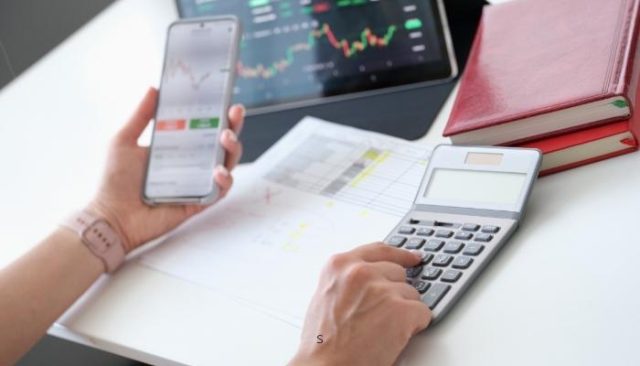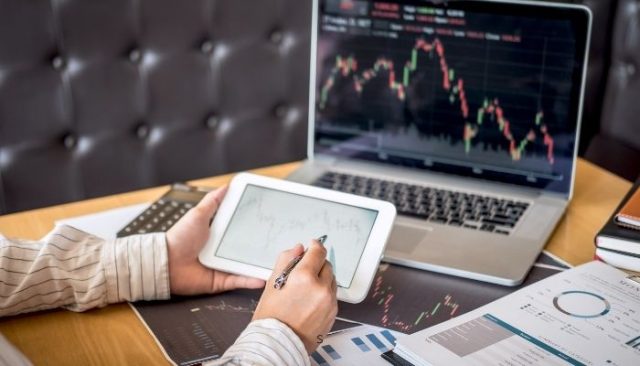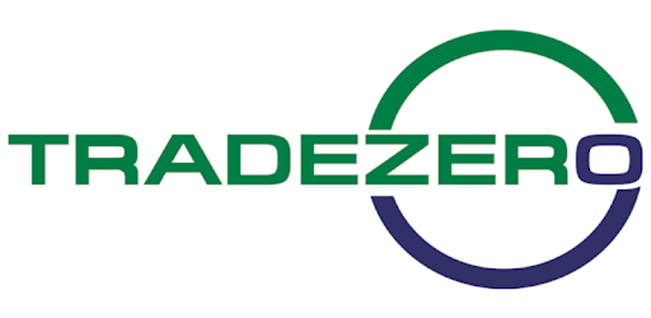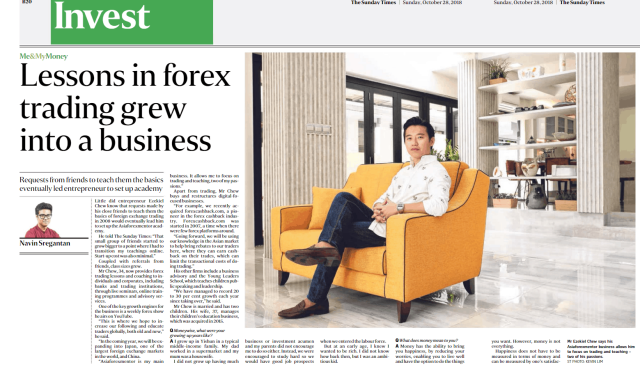Stock BuyBack: Definition, 4 Main Methods and Pros & Cons
By Jordan Blake
January 10, 2024 • Fact checked by Dumb Little Man

Want to jump straight to the answer? The best stock brokers for traders are Tradestation and Tradier
The #1 Stock and Forex Trading Course is Asia Forex Mentor
Companies often reward their shareholders by paying dividends to them. These dividends are issues in form of stocks or cash payments to the shareholders. But, companies can also reward their shareholders through stock buybacks or share repurchase programs. The stock buybacks can increase the stock prices of a company by boosting the value of the company's shares.
In recent times, share buybacks have become a preferred means of rewarding shareholders. Most multinational corporations prefer share buybacks to dividends due to the numerous benefits of repurchasing their own shares.
In this review, we will discuss what stock buybacks are, the different methods in use as well as their pros and cons.
Stock Buyback: What is Stock Buyback

Public companies sell shares of their own stock in the open market. But when the company decides to reduce the number of shares in circulation or the number of publicly traded shares, it can buy back the shares in a process known as stock buybacks. This involves using the company's funds to repurchase some of its own stock in the open market.
The share repurchases are open to any investor who wishes to sell their shares. In some cases, the company could cancel the purchased shares or retire them. By so doing, each of the remaining shareholders now owns a greater percentage of the company. These stock repurchases are often done using excess cash generated by the company or after the board of directors has passed a “repurchase authorization” which indicates the number of shares outstanding that the company aims to buyback.
Stock buybacks have a huge impact on the stock price and shareholder value of a company. This makes it a great way to reduce the amount of cash on a company's balance sheet as the rise in the stock prices boosts the price-to-earnings ratio.
| RECOMMENDED TRADING COURSE | REVIEW | VISIT |
|---|---|---|
 | #1 Forex, Crypto and Stocks trading course. Ranked most comprehensive by Investopedia and Best by Benzinga. Free to Try! |  |
4 Main Methods of Stock BuyBack
#1. Open Market Purchases

Open market purchases account for up to 95% of all share repurchases. It occurs when a company announces to the general public, that it will purchase its own shares in the open market. The company buys its publicly traded shares but does so at its own pace. This means the shares are purchased from time to time depending on the market conditions, shareholder sentiment, and stock prices. These open market purchases can last for long periods ranging from months to several years until the company's objectives are met.
Open market purchases may take a while before having an impact on the stock price. However, as long as the purchase continues, it creates a demand for the stock. The increase in demand often leads to an increase in the stock's valuation or market price as the number of shares outstanding reduces. Note that share buybacks through open market purchases are often strongly regulated. For instance, the SEC in the United States regulated the number of shares that can be bought on a daily basis.
#2. Fixed-Price Tender Offers

Tender offers can be executed as fixed price offers in which a company specifies the exact price that shares would be repurchased at. The number of shares to be bought as well as the duration of the tender offer is publicly disclosed. Upon the release of the offer, shareholders can decide whether or not to participate in the offer. The participants will be required to disclose the number of shares they are willing to sell, but also have the option of withdrawing their tendered shares before the offer expires.
In the vast majority of instances, the directors are not permitted to participate in tender offers. If the number of shares tendered by shareholders is not enough to meet the company's demand, the expiration date of the tender offer can be extended.
#3. Dutch Auction Tender Offers

In a dutch auction tender offer, the company provides a range of prices that it's willing to buy shares at. The shareholders then make bids specifying the number of shares they would like to sell at a specific price within the price range set by the company. This data is used by the company to determine the level of demand for the stock and obtain a demand curve to ascertain the best price to buy at.
Ultimately, the share buybacks are executed by purchasing the stocks at a price that allows the company to acquire the number of shares being sought.
#4. Direct Negotiation

Direct negotiation of a share repurchase occurs when a company repurchases its own stock from existing shareholders by approaching them individually. This allows the company to negotiate directly with a shareholder. The shareholders involved usually have a sizeable number of shares. This method is cost-effective but can be time-consuming due to long negotiation periods.
Why Do Companies Use Stock Buyback

Stock buybacks are carried out for a variety of reasons, most of which are aimed at making profits for a company or stabilizing the company's stock price. Let's discuss the 4 main reasons why companies use stock buybacks;
- To Boost Share Prices: Share buybacks reduce the number of shares outstanding and this leads to an increase in the valuation of the stocks in the stocks. The increase in value is caused by an increase in the demand for the stock. This demand is artificially created as the stocks are being purchased from shareholders. Having fewer shares in circulation means that the supply of the shares drops and investors are forced to pay more for the few circulating shares. This is a common tactic used by companies whose stocks are undervalued.
- To Mitigate the Effects of Stock Options: Some companies offer stock options to their employees as part of the payments for their services. When employees exercise stock options, the number of shares outstanding increases. This increase could lead to a devaluation of the company's shares or a reduction in share prices. To mitigate this, companies buy outstanding shares in order to optimize the number of shares in circulation.
- As a Defense Mechanism: Hostile takeovers can occur when an acquirer obtains a sufficient amount of a company's shares. To avoid this, the management of the company in question could buy more of the circulating shares to prevent the acquirer from obtaining enough shares.
- Improving the Ownership of Shareholders: Stock buybacks can improve the ownership of shareholders by increasing the value of the shares circulating after the buyback occurs. This means that each shareholder now owns a greater percentage of the company, thereby improving their ownership as well as the stock's value.
Pros and Cons of Stock Buyback
PROS
- Reduces the number of shares outstanding and this could increase the stock's valuation.
- Increases the demand for the stock and this could increase stock prices.
- Can be used to control the company's financial metrics
- Improves shareholder value
CONS
- It's not an optimal use of capital
- This could lead to a reduction in dividends
Featured Investing Broker of 2024
| Broker | Best For | More Details |
|---|---|---|
 | Advanced Traders Read Review | securely through Tradestation website |
 | Intuitive Platforms Read Review | securely through Tradier website |
 | Powerful Services at a Low Cost | securely through Tradezero website |
 | Professional Forex Traders Read Review | securely through Interactive Brokers website |
Best Stock and Forex Trading Course

Forex trading may seem technical to some especially those who are new in this field and are unfamiliar with the trading business. Even the most experienced traders may need to do follow up with the latest strategies and technological advances in the forex trading business. For this reason, every forex investor whether immature or seasoned is looking for guidance from forex experts.
However, the search for expert advice is over. The Asia Forex Mentor Proprietary One Core Program is the best and the most reliable forex trading course in the market. This program is extremely comprehensive keeping in mind all the knowledge and skills that may be required by a fore trader at any step of the trade.
With thousands of trainees in Asia and across the globe, Asia Forex Mentor has the expertise and experience to offer the best trading course to traders belonging to various sectors like banks, trading firms, fund management companies, and retail traders. Additionally, this includes not only courses in trading forex but also in stocks, indexes, commodities, crypto, gold, silver, and more.
Moreover, this best proprietary course is offered online by Asia Forex Mentor which means that no matter which part of the world you are in you can learn the best forex trading methodology at a click of a button. So join this incredible course now to master a money-making skill for life.
| RECOMMENDED TRADING COURSE | REVIEW | VISIT |
|---|---|---|
 | #1 Forex, Crypto and Stocks trading course. Ranked most comprehensive by Investopedia and Best by Benzinga. Free to Try! |  |
Conclusion: Stock Buyback

Stock buybacks occur when a company purchases some of its circulating shares in order to achieve a specific goal. These buybacks often increase the value of the remaining shares by artificially increasing the demand for them.
Stock buybacks can be executed via different mechanisms and are primarily aimed at improving the company in one way or another.
Before the transactions are carried out, the price of the stock has to be agreed upon through direct negotiation, a fixed price offer, or a Dutch auction.
Ultimately, you need to carry out your research to determine the best time to sell or buy stocks. Some stocks lose value after buybacks occur while others exponentially increase in value. By carrying out adequate research and analysis, you will be able to make profitable investment decisions to increase and diversify your stock portfolio.
Stock Buyback FAQs
Is stock buyback a good thing?
Like other business decisions, stock buybacks are done when there is a likelihood of success or achieving the desired outcome. When done right, it's good because it provides numerous advantages for the company and shareholders.
Who benefits from stock buyback?
Stock buybacks are aimed at providing value and benefits for the company and shareholders. If a stock buyback is successful, the valuation of a company and its shares would most likely increase. This is also of great benefit to the existing shareholders because they make profits and own a greater percentage of the company.
Therefore, both the company and shareholders benefit from stock buybacks. The shareholders who sell their shares also benefit from the buybacks since they will be paid for the shares purchased by the company. This shows that like most business transactions, all parties that participate in a successful stock buyback benefit in one way or another.
How do you profit from stock buybacks?
To profit from a stock buyback, you can sell your shares to a company at a reasonable price. Alternatively, you can hold on to your stocks if you think their value would increase after the buyback occurs.
Jordan Blake
Jordan Blake is a cultural commentator and trending news writer with a flair for connecting viral moments to the bigger social picture. With a background in journalism and media studies, Jordan writes timely, thought-provoking content on everything from internet challenges and influencer scandals to viral activism and Gen Z trends. His tone is witty, observant, and sharp—cutting through the noise to bring readers the “why” behind the “what.” Jordan’s stories often go deeper than headlines, drawing links to pop culture, identity, and digital behavior. He’s contributed to online media hubs and social commentary blogs and occasionally moderates online panels on media literacy. When he’s not chasing the next big trend, Jordan is probably making memes or deep-diving into Reddit threads. He believes today’s trends are tomorrow’s cultural history—and loves helping readers make sense of it all.













